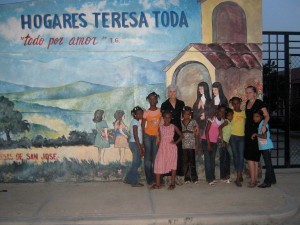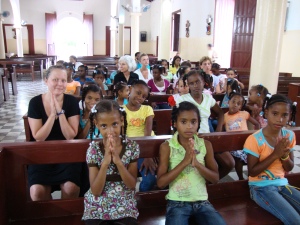1. Emphasize relationship over resources
A true partnership builds and nurtures a familial relationship over a period of time, a relationship that transcends any single act of working together (such as a project) or of sending a check. If the partnership is based on resources, then the partner with little material resources is excluded from fully participating in the relationship except as a receiver. But when the relationship is valued above all, it allows for mutual participation and transformation. All are invited to participate equally; we all have the ability to love, pray and be present to one another.

2. Practice mutuality and equality
True mutuality allows each of the partners to function from a place of strength rather than weakness. We each must acknowledge the wholeness of the other. We must be alert to the historic imbalances of power between developed nations and poor countries and how that inequity plays out at all levels of a relationship. We need to intentionally incorporate opportunities for dialogue, planning, assessing, challenging and reflecting together in order to not to fall into the trap of the giver and receiver, of the superior and the inferior.

3. Seek to give and receive, learn and teach
In fact, our poverties are an invitation to another to share their gifts, affirming their value and contribution. This requires a spirit of humility, recognizing that we are mutually interdependent and in need of each other.

4. Work to change unjust systems and structures
If we mindfully focus on the relationship, ask open-ended questions, and learn from our partner, they will invite us in to see and understand their reality – their joys and celebrations, as well as their sorrows and struggles. We begin to recognize the unjust structures and systems that often keep people in poverty and are challenged to gently confront our own role and contribution to this injustice, whether through our inaction (e.g., when we allow important legislation to pass or fail unchallenged) or more actively though our consumer choices, our level of consumption, etc. We are called to work to change those systems and/or our own personal habits and activities for the sake of those we have come to know and love as well as for others who share the same challenges.

5. Deepen our faith by experiencing the universal, catholic church
Our partnerships calls us more fully into St. Paul’s image of the church as one body of Christ, with many unique parts offering different gifts yet unified in Christ. As the Reverend William Nordenbrock of the Missionaries of the Precious Blood explains, “If we approach tour partnership as a mutual sharing within the body of Christ, then in our desire to evangelize, we receive the gift of being evangelized, of having our faith renewed.” We are challenged by our partner’s witness of faith amidst adversity. As we come to know brothers and sisters of faith from a culture other than our own, we learn new ways of understanding the Scriptures, and we see new models of being a parish community. We concretely experience out oneness in Christ and are encouraged to expand our sense of shared humanity, not only with our parish partner, but with all God’s people in the universal church.













